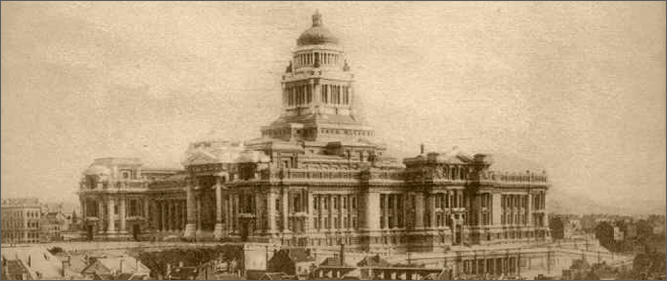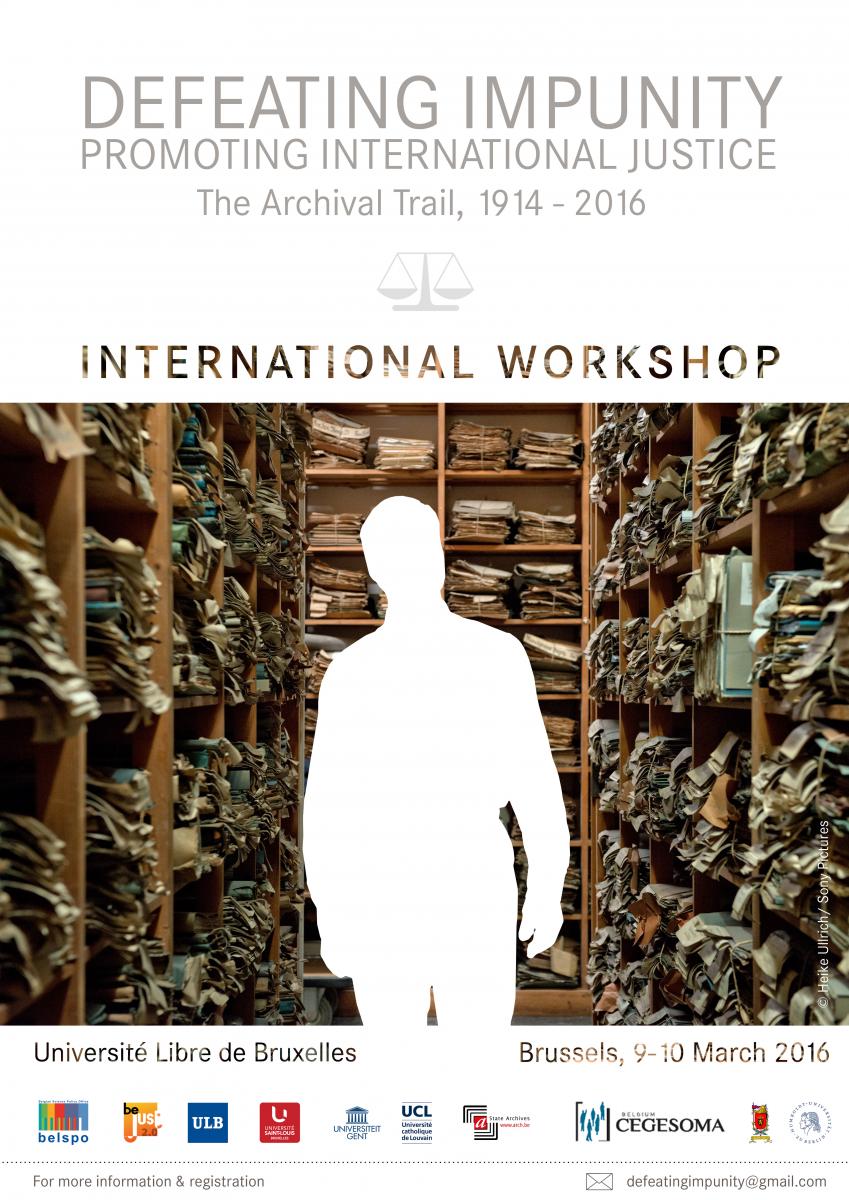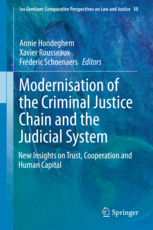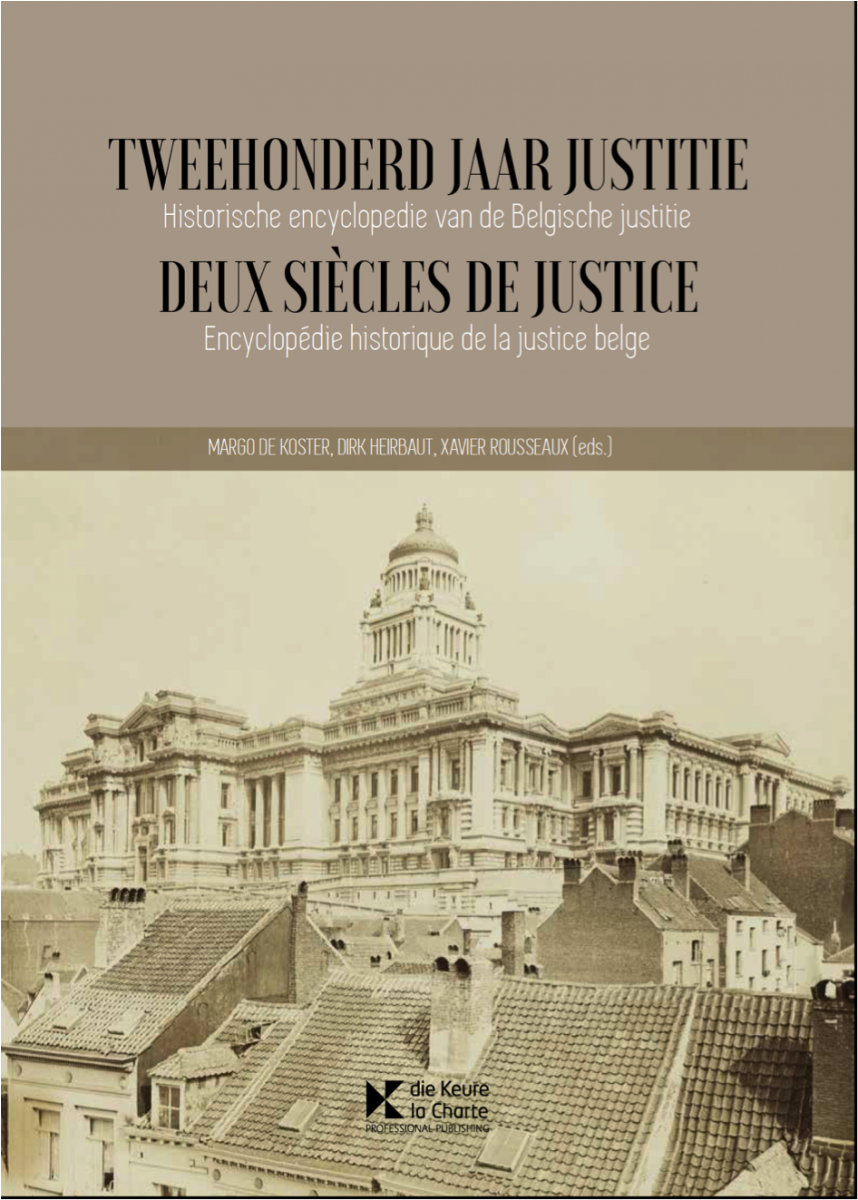
Welcome to BeJust 2.0
This website is the home of the research project Justice & Populations: The Belgian Experience in International Perspective that analyses relationships between Justice and Populations from an interdisciplinary, long-term and bottom-up perspective, covering the period from 1795 up to the present.
Available now

WP4 International Conference

The Art of Law
Artistic Representations and Iconography of Law & Justice in Context
from the Middle Ages to the First World War
Bruges, 16-18 January 2017
WP1a International Conference

For more information & registration: defeatingimpunity@gmail.com
Available now
This book focuses on one part of the judicial system: the criminal justice chain. This involves all the activities and actors dealing with policing, prosecution, judgment, and sanctioning of crimes. In the last decades, reforms have been implemented in several European countries. In Belgium, for example, there was the so-called Octopus reform in 1998. The police was restructured, leading to an integration of the police forces on a national and local level. New steering instruments were introduced, such as regional security plans. With regard to the sanctioning of crimes, a new institution was installed, called the sentence implementation court. This book evaluates these reforms and discusses the current reform on the reorganization of the judicial landscape. In addition, it examines the relation between trust and distrust and the application to the judicial system. It discusses the human capital aspect of the system, by means of a study on the prosopography of the Belgian magistrates that analyses the Magistracy as socioprofessional group, and focuses on situations of system building, transformations under constraint (occupations), and transfers (colonial experience). Lastly, the book presents a comparative study of Belgium and France regarding the new techniques and instruments that are needed to accelerate the judicial response time and to ensure that the judicial system delivers its services on time.
Available now
Quatrième de Couverture/Flaptekst:
Lors des secousses de l’affaire Dutroux, un slogan facile assenait qu’il fallait faire passer la justice belge du XIXe au XXIe siècle. En réalité, cette justice n’a pas cessé d’évoluer au rythme des flux et reflux des priorités de la société belge. Initiée par le programme et réseau de recherche « Justice & Society : Socio-Political History of Justice Administration in Belgium, 1795-2005 » (PAI 6/01, SPF Politique Scientifique), cette Encyclopédie propose un panorama de l’état des connaissances sur l’histoire de la justice en Belgique. Les 28 contributions abordent sous un jour nouveau les fondations politiques et intellectuelles, l’organisation et les politiques de gestion, les acteurs et les professions liées à l’exercice du droit ou encore l’influence des évolutions sociétales sur la justice belge depuis les Révolutions jusqu’aux soubresauts de la fin du XXe siècle.
Ten tijde van de commotie door de zaak Dutroux weerklonk meermaals de slogan dat het Belgisch justitieel apparaat de overstap diende temaken van de 19de naar de 21ste eeuw. De justitiële wereld is nochtans nooit gestopt met evolueren overeenkomstig de veranderende kenmerken en noden van de Belgische samenleving. In het kader van het onderzoeksproject en –netwerk « Justice & Society : Socio-Political History of Justice Administration in Belgium, 1795-2005 » (PAI 6/01, POD Wetenschapsbeleid) biedt deze Encyclopedie een overzicht van de stand van de kennis betreffende de geschiedenis van justitie in België. De 28 bijdragen geven een nieuwe kijk op de politieke en intellectuele grondslagen, de interne organisatie en het beleid, de mensen van het recht en hun functies, om dan ten slotte, de evolutie van justitie te kaderen in de veranderende maatschappelijke context, vanaf de geboorte van de Belgische Staat uit de revoluties tot aan de crisissen op het einde van de 20ste eeuw.
The Interuniversity Attraction Pole P7/22 "Justice & Populations: The Belgian Experience in International Perspective, 1795-2015" (BeJust 2.0) is part of the Interuniversity Attraction Poles Programme Phase VII (2012-2017), financed by the Belgian Science Policy Office of the Belgian State.
The IAP VII/22 Justice & Populations www.bejust.be is the outcome of a collaboration between the Cegesoma, the IAP coordination team (CHDJ-UCL) and the Royal Military Academy. Design: tangografix. Powered by Drupal


